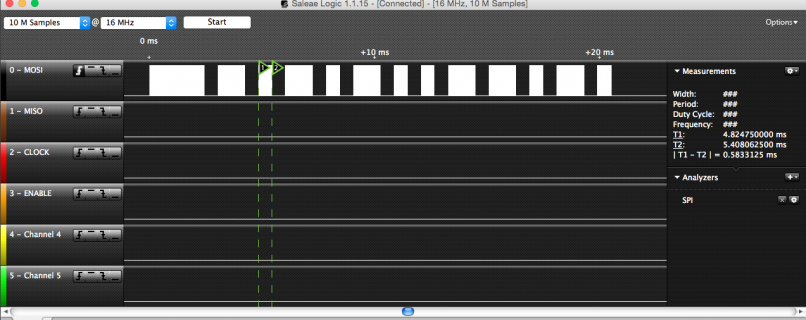teensy/USB/latency_test/
src/teensy/latency_test
latency_test /dev/ttyACM0
port /dev/ttyACM0 opened
waiting for board to be ready:
.ok
latency @ 1 bytes: 0.11 ms average, 0.22 maximum
latency @ 2 bytes: 0.14 ms average, 0.62 maximum
latency @ 12 bytes: 0.21 ms average, 1.30 maximum
latency @ 30 bytes: 0.34 ms average, 1.77 maximum
latency @ 62 bytes: 0.50 ms average, 0.58 maximum
latency @ 71 bytes: 0.58 ms average, 0.66 maximum
latency @ 128 bytes: 0.94 ms average, 1.01 maximum
latency @ 500 bytes: 3.11 ms average, 3.24 maximum
latency @ 1000 bytes: 5.92 ms average, 6.05 maximum
latency @ 2000 bytes: 11.53 ms average, 13.73 maximum
latency @ 4000 bytes: 22.69 ms average, 22.80 maximum
latency @ 8000 bytes: 45.07 ms average, 45.53 maximum
teensy/USB/USBreadbytes
receive_test /dev/ttyACM0
...
Bytes per second = 1150616
Bytes per second = 1150241
Bytes per second = 1150902
Bytes per second = 1151322
Average bytes per second = 1150290
USBreadbyte
receive_test /dev/ttyACM0
Bytes per second = 550373
Bytes per second = 551217
Average bytes per second = 551243


